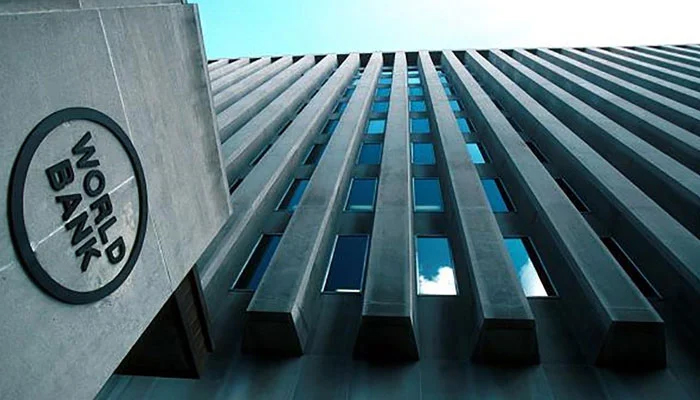Pakistan among states to see foreign investment hit by polls-related uncertainty: WB
However, implementation of policies to reduce uncertainty, strengthen growth potential after elections could lead to an improvement in prospects
ISLAMABAD: While keeping Pakistan’s GDP growth projections unchanged at 1.7 and 2.4 percent for FY24 and FY25, the World Bank (WB) states that parliamentary elections are scheduled for 2024 in several South Asian countries, including Pakistan, and heightened uncertainty around these elections could dampen foreign investment.
“In a number of SAR economies (Bangladesh, Bhutan, India, Maldives, and Pakistan), parliamentary or national assembly elections are scheduled or planned in 2024. The heightened uncertainty around these elections could dampen activity in the private sector, including foreign investment. If combined with political or social unrest and elevated violence, this could further disrupt and weaken economic growth,” it was stated in the Global Economic Report released by the World Bank on Wednesday.
In addition, the WB report says that particularly in countries with weak fiscal positions, an increase in spending prior to these elections could exacerbate macro-fiscal vulnerabilities. However, the implementation of policies to reduce uncertainty and strengthen growth potential after elections could lead to an improvement in prospects.
In Pakistan, the economic outlook for FY2023/24 (July 2023 to June 2024) remains subdued, with growth projected at only 1.7 percent. Monetary policy is expected to remain tight to contain inflation, while fiscal policy is also set to be contractionary, reflecting pressures from high debt-service payments. Weak confidence stemming from political turmoil will contribute to the slow growth in private demand. As inflationary pressure eases, growth is expected to pick up to 2.4 percent in FY2024/25.
As poorer households spend more on food, rising food prices would disproportionately affect the poor and the vulnerable, resulting in an increase in poverty and inequality. The risk is particularly high in countries with limited fiscal buffers to mitigate adverse effects, including Nepal and Pakistan, and in countries under major security threats, including Afghanistan. In addition, an increase in food insecurity could be exacerbated by the escalation of the ongoing conflict in the Middle East.
External and fiscal financing needs are elevated in several SAR economies, including Maldives, Pakistan, and Sri Lanka, increasing vulnerabilities to financial market disruptions.
Output in Pakistan is estimated to have contracted during FY2022/23 (July 2022 to June 2023). Inflation remained elevated, partly reflecting large currency depreciation in early 2023. However, towards the end of 2023, Pakistan’s currency exhibited signs of stabilization.
The outlook in Pakistan remains subdued for FY2023/24. Monetary policy is expected to remain tight to contain inflation, while fiscal policy is also set to be contractionary.
-
 Gaten Matarazzo Brands 'Stranger Things' Final Scene 'nerve-racking'
Gaten Matarazzo Brands 'Stranger Things' Final Scene 'nerve-racking' -
 David Beckham Speaks Out After Son Brooklyn Beckham's Shocking Post
David Beckham Speaks Out After Son Brooklyn Beckham's Shocking Post -
 Sophie Turner Gets Candid About 'imposter Sydrome' Post 'GOT'
Sophie Turner Gets Candid About 'imposter Sydrome' Post 'GOT' -
 When Nicola Peltz's Boyfriend Anwar Hadid Found Solace In Dua Lipa's Arms
When Nicola Peltz's Boyfriend Anwar Hadid Found Solace In Dua Lipa's Arms -
 Claire Foy Reveals Rare Impact Of 'The Crown' Gig On Career
Claire Foy Reveals Rare Impact Of 'The Crown' Gig On Career -
 Megan Thee Stallion Teases New Music On The Way
Megan Thee Stallion Teases New Music On The Way -
 Blonde Kate Stuns In Photos With Prince William During Rare Joint Engagement
Blonde Kate Stuns In Photos With Prince William During Rare Joint Engagement -
 Kate Gosselin Reveals Horrowing Moment Thief Nearly Took Her Down
Kate Gosselin Reveals Horrowing Moment Thief Nearly Took Her Down -
 Billy Bob Thornton Weighs In On Contrast To 'Landman' Role
Billy Bob Thornton Weighs In On Contrast To 'Landman' Role -
 Amanda Holden May Swap Position To Different Reality Show: See Which
Amanda Holden May Swap Position To Different Reality Show: See Which -
 The Truth Behind Victoria Beckham's 'inappropriate' Wedding Dance Video
The Truth Behind Victoria Beckham's 'inappropriate' Wedding Dance Video -
 AI Startup Raises $480 Million At $4.5 Billion Valuation In Earlier Gains
AI Startup Raises $480 Million At $4.5 Billion Valuation In Earlier Gains -
 North Carolina Woman Accused Of Serving Victims With Poisoned Drinks
North Carolina Woman Accused Of Serving Victims With Poisoned Drinks -
 Robert Redford’s Daughter Amy Sings Praises Of Late Father
Robert Redford’s Daughter Amy Sings Praises Of Late Father -
 OpenAI And ServiceNow Team Up To Embed ChatGPT In Business Workflows
OpenAI And ServiceNow Team Up To Embed ChatGPT In Business Workflows -
 Johnny Depp Prepares For His Massive Comeback After Years Of Struggle
Johnny Depp Prepares For His Massive Comeback After Years Of Struggle




